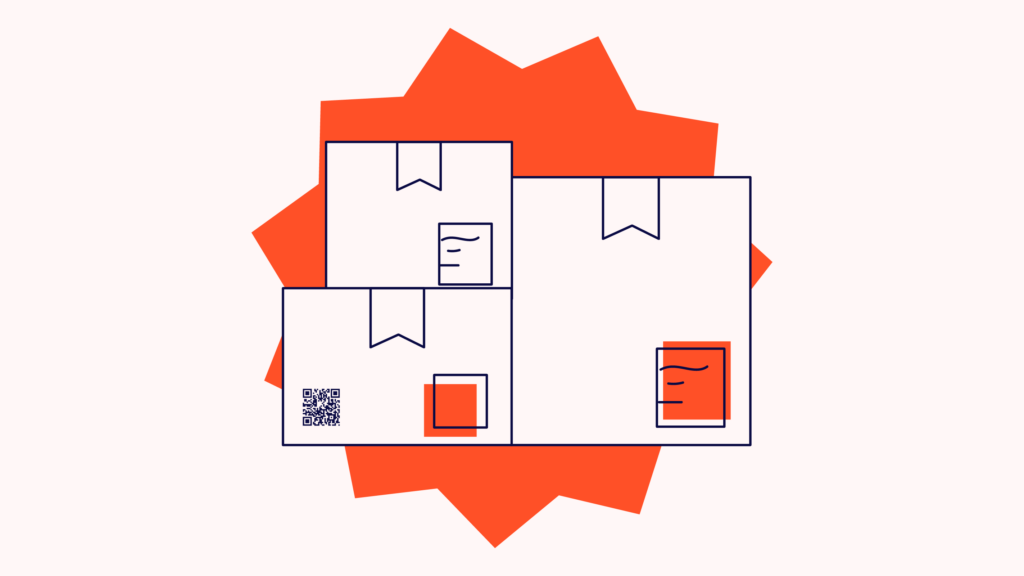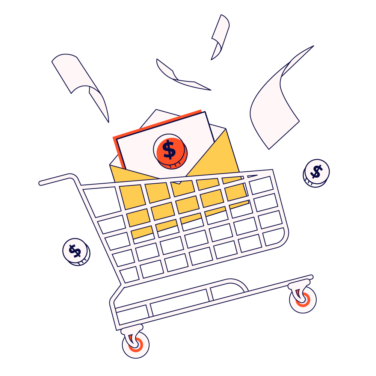At a glance, wholesale ecommerce seems like an odd intrusion into the market. Companies that do this—sometimes called dropshippers when they sell directly to the public—act as middlemen to connect manufacturers with buyers.
These may be end-user sales, or you might be selling to another business doing the heavy lifting of selling to the public. Your role in this is to take the orders from vendors and customers, pass them to the manufacturer or distributor (often overseas), and sometimes ensure the delivery runs smoothly.
In this article, I'll outline how you can profit from wholesale ecommerce, how it works in B2C and B2B, how it differs from using ecommerce platforms for dropshipping, and how to start building your wholesale ecommerce business.
What's the Point of a Wholesale Ecommerce Business?
As a rule, middlemen exist to smooth out inefficiencies in markets. Any wholesale business operates to help connect producers, who can't be expected to find and market to customers directly, with retailers, who won't manufacture the products they sell. The quirks of individual markets might call up a second layer of wholesalers, such as when you have to get things across national boundaries or navigate heavily regulated environments where specialist knowledge is required.
If you're doing it right, your business model can help both sides of the transaction. By acting as a purchasing agent for manufacturers, you're helping increase confidence among the companies that make stuff, while acting as a clearinghouse for merchandise makes your wholesale ecommerce business a kind of one-stop shop for wholesale buyers, who might not even know how to find the supply chain without you.
A well-run wholesale ecommerce business essentially has the ability to streamline operations and boost profit margins on both ends of the supply chain.
The Difference Between B2B and B2C Ecommerce
Officially, there is a difference between wholesale ecommerce businesses and customer-facing ecommerce stores. This distinction is a holdover from the bad old days before the internet.
For instance, an automotive wholesaler from the 1970s would connect the factory with the car lot. The math here was simple: The factory where they made the station wagons was in Detroit, the customer was in Los Angeles, and somebody had to run the trucks from Point A to Point B. That was the wholesaler, and it was nice work if you could get it.
The internet has flattened out that relationship.
Today, you can get your California-built Tesla delivered directly to your driveway in Massachusetts. Items with lower ticket prices make this flattening even more obvious. If you want a sweater that was made in Indonesia delivered to Texas, you could, in theory, log into your account at the Bali Sweater Company and have it shipped right to you in San Antonio.
This doesn't always work so well.
Suppose you want an item that one manufacturer makes but a similar or related thing made by another, which could be located on the other side of the planet. You, as the customer, want it all combined in one easy customer experience. You want a single charge to your credit card and the simplest insurance or returns policy possible.
That's where the middleman comes in.
Some of the world's largest fortunes have come out of this business model: Amazon, eBay, Shopify—and so on—connect buyers with various demands to sellers with various product lines.
Picture a river on a map: All the world's producers are the tributaries, all the customers are the branching streams in the delta, and your wholesale business is the long, super-efficient river in between.
There's an extra layer involved in a lot of these transactions.
In a four-part transaction, you might see the customer place an order with an online retail storefront, followed by the retailer buying from a wholesaler, who pulls from a manufacturer's inventory. You might even buy from another wholesaler, which adds another layer still.
Why Wholesale Ecommerce Differs From Dropshipping
Dropshipping has a bad rep, especially among people who've paid too much for items that are not quite what they ordered. This is a B2C issue, and it can usually be avoided by checking out online reviews and sticking to reputable sellers.
B2B wholesale isn't strictly dropshipping, though it can play a similar role between businesses. For B2B customers, wholesalers can do a world of good by reselling rare or niche items, delivering large quantities of stock, or helping to navigate new markets with lots of rules or unique challenges.
A reliable online wholesaler can widen the profit margins with better automation, quicker service, and more responsive communication between parties.
Building Your Wholesale Ecommerce Platform: Three Models
Before you start online wholesale, your first decision is to pick the kind of business owners and wholesale products you're most comfortable working with.
While everybody is different, and there's no end to the variations you can find in these markets, most B2B wholesale commerce falls into three basic types:
- Merchant B2B wholesalers: This is the traditional model of B2B wholesalers. Merchant-based wholesale moves large quantities of inventory from manufacturers and ships them directly to retailers. They might have overhead of their own in the form of warehouses or shipping assets, but these days they're more likely to just have wholesale marketplaces that handle some pretty smooth order management on the back end. Get to know some of these people if you're just starting out, since they tend to be experts in their product lines and have lots of experience.
- Brokers and agents: They don't exactly wholesale themselves, but they negotiate the deals between buyers and sellers. Think commodities traders on Wall Street. They don't get pork bellies and herds of cattle delivered to their warehouses. Still, they negotiate the contracts connecting the farms and the processing plants—with themselves in the middle taking a slice. Connect with this market if you're working in a field with large and unpredictable price swings since they get paid as your buffer.
- Dedicated vendor relationships: Vendors might be employees of the manufacturer, or they might be independent contractors, but they have a close relationship with the producers and will not be unbiased. Among wholesale operations, vendors might be able to get you a low price and great deals on packages of related items, but they aren't there to show you competitors' products, so do your own research.
Should You Run Your Own Wholesale Ecommerce Website or Not?
If you're going into this field for yourself, or if you've already started with B2C dropshipping and are looking to expand into B2B, you'll need your own wholesale ecommerce website.
While sites like Alibaba are an easy place to get started, they just aren't set up to handle the volume you need to be truly independent, and a lot of the records for your business will be manually created spreadsheets you build by poring over old emails documenting sales you've made.
That said, starting a website from scratch is complicated. You can probably knock something together in an afternoon using services designed for blogs and other non-ecommerce applications. Still, you need a specific set of tools built around wholesale ecommerce—a wholesale ecommerce platform.
Things to Look for In a Wholesale Ecommerce Platform
There are good online wholesale platforms and some not-so-good, and the best wholesale ecommerce platforms all have a few things in common. Before you settle on one you like, think about these factors:
- Your budget
- Your target region
- Language support
- Supported payment methods
- Ease of use
- Customer support
- Account management options
- Integration with your CRM
- Inventory management
What Are the Best Ecommerce Business Platforms Today?
Okay, so you know what's important in an ecommerce platform, but which ones have the functionality you need?
Which platforms are on the market, which are in your price range, and which let you integrate your SEO approach? Or work from mobile apps? Or offer omnichannel social media integration?
Here are a few handy lists of the top platforms for ecommerce:
- 10 Best Ecommerce Platforms
- 10 Best B2B Ecommerce Platforms
- 10 Best Open Source Ecommerce Platforms
- 10 Easiest Ecommerce Platforms
- 10 Best Headless Ecommerce Platforms
- 10 Best Ecommerce Platforms For Small Businesses
- 10 Best Enterprise Ecommerce Platforms For High-Volume Selling
- 10 Best Subscription Ecommerce Platforms
- 10 Best Ecommerce Marketplace Platforms For Online Selling
Get Started With Wholesale Ecommerce—With A Little Help From ECM
So now you know what you need to get started with your own wholesale ecommerce site. You're bound to be a great success, naturally, but you know what else helps?
Subscribe to The Ecomm Manager newsletter to learn everything you need about the world of ecommerce. You'll be glad you did.
More great ECM content:


